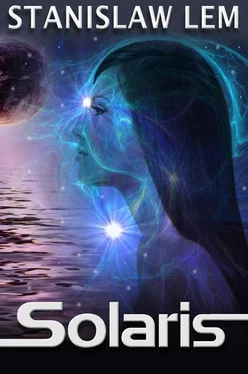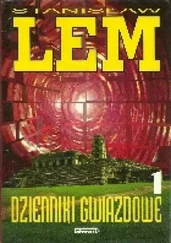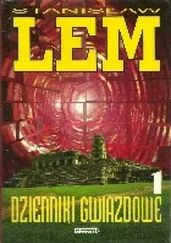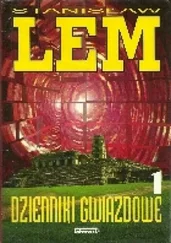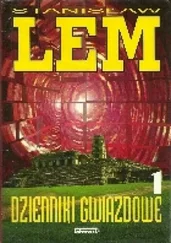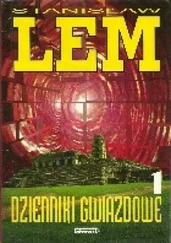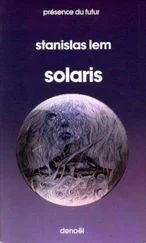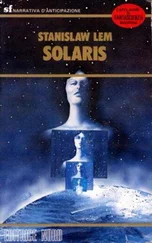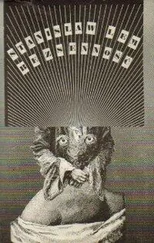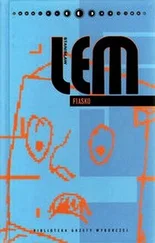Snaut came into the cabin. He looked around, then stared at me. I got up and went up to the table.
“Did you want something?”
“Am I right in thinking you don’t have anything to do…?” he asked, blinking. “I could give you, there are some calculations that need running, not that they’re urgent or anything…”
“Thanks,” I said with a smile, “but that’s not necessary.”
“Are you sure?” he asked, looking out of the window.
“Yes. I’ve been thinking about various things and—”
“I’d rather you didn’t think so much.”
“Then you have no idea what this is about. Tell me, do you… believe in God?”
He gave me a sharp look.
“Come off it. Who still believes these days…”
Unease flickered in his eyes.
“It’s not so straightforward,” I said in a deliberately light tone. “I don’t mean the traditional God of terrestrial beliefs. I’m no specialist in religion, and I may not have come up with anything new, but do you happen to know if there ever existed a faith in… a defective God?”
“Defective?” he repeated, raising his eyebrows. “How do you mean? In a certain sense the god of every religion was defective, because he was encumbered with human qualities, only magnified. The God of the Old Testament, for instance, was a hothead who craved servility and was jealous of other gods… the Greek gods had just as many human imperfections, with their quarrelsomeness and their family squabbles—”
“No,” I interrupted him, “I mean a God whose deficiencies don’t arise from the simplemindedness of his human creators, but constitute his most essential, immanent character. This would be a God limited in his omniscience and omnipotence, one who can make mistakes in foreseeing the future of his works, who can find himself horrified by the course of events he has set in motion. This is… a cripple God, who always desires more than he’s able to have, and doesn’t always realize this to begin with. Who has built clocks, but not the time that they measure. Has built systems or mechanisms that serve particular purposes, but they too have outgrown these purposes and betrayed them. And has created an infinity that, from being the measure of the power he was supposed to have, turned into the measure of his boundless failure.”
“Once there was Manicheism,” Snaut began hesitantly. The guarded reserve with which he’d been treating me in recent days had disappeared.
“But this has nothing to do with good and evil,” I interrupted him at once. “This God doesn’t exist outside of matter, he’s unable to free himself of it, and that’s all he wants…”
“I don’t know any religion like that,” he said after a moment of silence. “Such a religion was never… necessary. If I understand you correctly, and I’m afraid I do, then you’re thinking about an evolving god who develops through time and grows, mounting higher and higher levels of power toward the awareness of that power’s impotence? This God of yours is a being who has entered godhood like entering a blind alley, and when he comprehends this, he yields to despair. Fine, but surely a despairing God is a human being, my friend? You’re thinking about human beings… This isn’t just poor philosophy, it’s even poor mysticism.”
“No,” I insisted, “I’m not thinking about human beings. Perhaps in certain features that might match the provisional definition, but only because it’s full of holes. A human being, appearances to the contrary, doesn’t create his own purposes. These are imposed by the time he’s born into; he may serve them, he may rebel against them, but the object of his service or rebellion comes from the outside. To experience complete freedom in seeking his purposes he would have to be alone, and that’s impossible, since a person who isn’t brought up among people cannot become a person. My… one has to be a being devoid of plurality, you follow?”
“Oh,” he said, “right away I should’ve…”
And he pointed out the window.
“No,” I disagreed, “not that either. At the most as something that in its growth missed an opportunity for godhood, having retreated too soon into itself. It’s more of an anchorite, the hermit of the universe, not its god… It repeats itself, Snaut, whereas the one I’m thinking about would never do that. Maybe he’s coming into existence as we speak, in some corner of the Galaxy, and before long, in a fit of youthful intoxication he’ll start extinguishing some stars and lighting others, after a certain time we’ll notice it…”
“We already have,” said Snaut sourly. “ Novas and supernovas… are they candles on his altar, according to you?”
“If you want to treat what I’m saying so literally…”
“Perhaps Solaris is precisely the cradle of this divine infant of yours,” added Snaut. An ever more distinct smile was ringing his eyes with little creases. “Perhaps in your conception this is the origin, the seed of the God of despair, perhaps its exuberant childhood is way beyond our comprehension, and everything our libraries of solariana contain is merely a catalogue of his infant reflexes…”
“And for a while we were his playthings,” I finished. “Yes, that’s possible. You know what we just managed to do? Create an entirely new hypothesis on the subject of Solaris, and that’s no small achievement! Right away you have an explanation of the failure to make Contact, the lack of response, certain, let’s say, extravagances in its treatment of us: the mind of a small child…”
“I don’t need to put my name to it,” he murmured as he stood by the window. For a long moment we gazed at the black waves. On the eastern horizon a pale elongated smudge could be seen through the mist.
“Where did you get that idea of a defective God?” he asked suddenly, not taking his eyes off the emptiness bathed in light.
“I don’t know. It seemed to me very, very authentic, you know? It would be the only God I’d be inclined to believe in, one whose suffering wasn’t redemption, didn’t save anyone, didn’t serve any purpose, it just was .”
“A mimoid,” Snaut said ever so quietly, in a different voice.
“What was that? Oh, right. I noticed it before. It’s really old.”
We both gazed at the misty red horizon.
“I’m going to go fly there,” I said unexpectedly. “All the more because I’ve been on the Station the whole time; this is a good opportunity. I’ll be back in half an hour…”
“What did you say?” Snaut opened his eyes wide. “You’re going out there? Where to?”
“There.” I pointed at the indistinct flesh-colored shape looming in the mist. “What harm could it do? I’ll take the small helicopter. It’d be ridiculous if, one day on Earth, I had to admit that I’m a solaricist who’s never set foot on the planet…”
I went up to the locker and started picking out a set of overalls. Snaut watched me in silence then eventually said:
“I don’t like this.”
“What?” I turned around with the overalls in my hand. I was overcome by an excitement I hadn’t experienced in a long while. “What’s the problem? Come on, cards on the table! You’re afraid that I’ll… that’s absurd! I give you my word I wouldn’t. It hadn’t even occurred to me. No, really no.”
“I’ll go with you.”
“Thanks, but I’d rather be on my own. After all, it’s something new, something completely new.” I was speaking quickly as I pulled on the overalls. Snaut went on talking but I didn’t really listen as I hunted for what I’d need.
He went with me to the docking bay. He helped me wheel out the helicopter from its hangar into the middle of the launch pad. As I was putting on my space suit he suddenly asked:
Читать дальше
